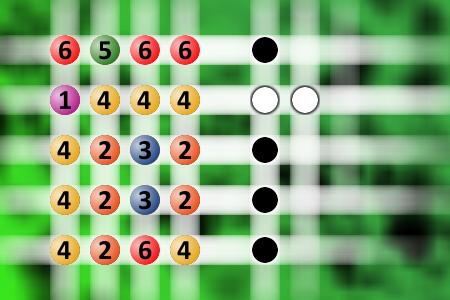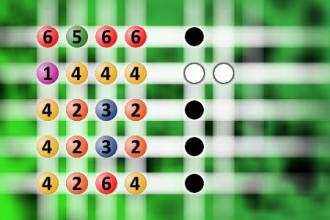Which is a winning combination of digits?
The computer chose a secret code (sequence of 4 digits from 1 to 6). Your goal is to find that code. Black circles indicate the number of hits on the right spot. White circles indicate the number of hits on the wrong spot.Correct answers: 6
#brainteasers #mastermind

Working in The Garden
A prisioner in jail received a letter from his wife:
"I have decided to plant some lettuce in the back garden. When is the best time to plant them?"
The prisioner, knowing that the prison guards read all the mail, replied in a letter:
"Dear Wife, whatever you do, DO NOT touch the back garden! That is where I hid all the gold."
A week or so later, he received another letter from his wife:
"You wouldn't believe what happened. Some men came with shovels to the house, and dug up the whole back garden."
The prisoner wrote another letter:
"Dear wife, NOW is the best time to plant the lettuce!"

